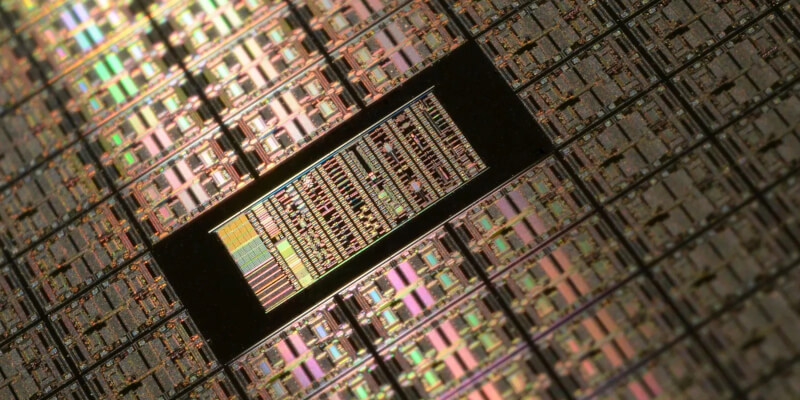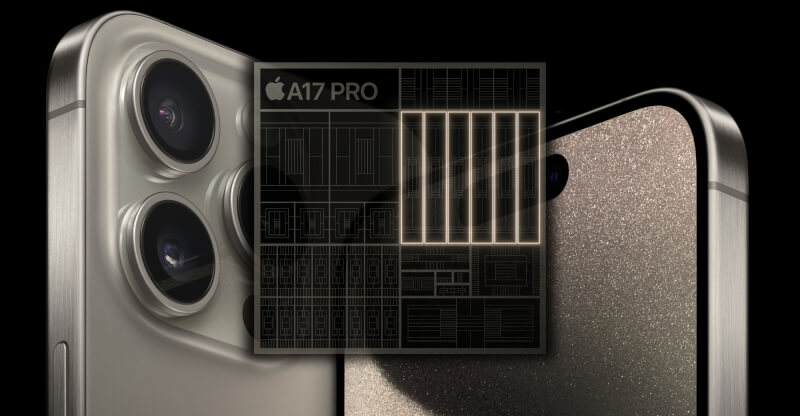Apple's A18 Pro CPU: Performance and Efficiency

The A18 Pro is expected to serve as the successor to the A17 Pro and is expected to exclusively power the upcoming iPhone 16 Pro and iPhone 16 Pro Max that are said to launch later this year. Although it has been reported that the SoC will have a 6-core GPU, which may not mean graphics performance improvements, the reporters never got into the CPU cluster as that information was not available at the time.
However, a source with inside knowledge claims that the core configuration will remain unchanged from Apple's previous A-series chipsets, potentially meaning that we may not see a significant difference between the two silicon generations. Like the A17 Pro, both the A18 and A18 Pro are rumored to have a 6-core CPU, according to @negativeonehero, who claims that both SoCs are expected to have two performance and four efficiency cores.
The latest information is likely a reaction to YouTuber Vadim Yuryev's prediction about the core count of the two chipsets, which claims that the A18 Pro will have a '2 + 6' configuration. The insider responded by saying that he hasn't heard of any mention that the A18 Pro will have an 8-core CPU, which might be a disappointing twist as the SoC may lose the possibility of multi-threaded performance gains.
Regardless, even with the 6-core configuration, we were impressed with the A18 Pro's Geekbench 6 single-core and multi-core performance improvements, as the leaked numbers showed the silicon to be up to 28 percent faster than the A17 Pro. Unfortunately, it fails to overtake the claimed numbers of Qualcomm's upcoming Snapdragon 8 Gen 4, which is said to have a 46 percent multi-core lead against the Snapdragon 8 Gen 3.

However, there may be a silver lining to this, as Apple may be deliberately trying to reduce performance gains in favor of better efficiency, which could provide increased battery life. That's not the only positive potentially coming to the A18 and A18 Pro, as Apple could use larger dies, resulting in increased cache and a possibly larger Neural Engine, along with other upgrades.
Of course, it is important to note that since all this information is unconfirmed, we must treat it with a grain of salt and we will return with future updates on the subject.
Latest processor - cpu
-
31 Octprocessor - cpu
-
16 Sepprocessor - cpu
AMD Ryzen AI 7 PRO 360 spotted
-
04 Sepprocessor - cpu
Intel scores big AI chip customer
-
04 Sepprocessor - cpu
Exclusively-Intel manufacturing store drawers
-
29 Augprocessor - cpu
Big performance boost for Ryzen CPUs
-
28 Augprocessor - cpu
Intel shares could fall in battle with TSMC and NV
-
28 Augprocessor - cpu
AMD is claimed to have been hacked
-
27 Augprocessor - cpu
Intel presents Lunar Lake, Xeon 6, Guadi 3 chips
Most read processor - cpu
Latest processor - cpu
-
31 Octprocessor - cpu
AMD will launch the Ryzen 7 9800X3D on November 7
-
16 Sepprocessor - cpu
AMD Ryzen AI 7 PRO 360 spotted
-
04 Sepprocessor - cpu
Intel scores big AI chip customer
-
04 Sepprocessor - cpu
Exclusively-Intel manufacturing store drawers
-
29 Augprocessor - cpu
Big performance boost for Ryzen CPUs
-
28 Augprocessor - cpu
Intel shares could fall in battle with TSMC and NV
-
28 Augprocessor - cpu
AMD is claimed to have been hacked
-
27 Augprocessor - cpu
Intel presents Lunar Lake, Xeon 6, Guadi 3 chips






